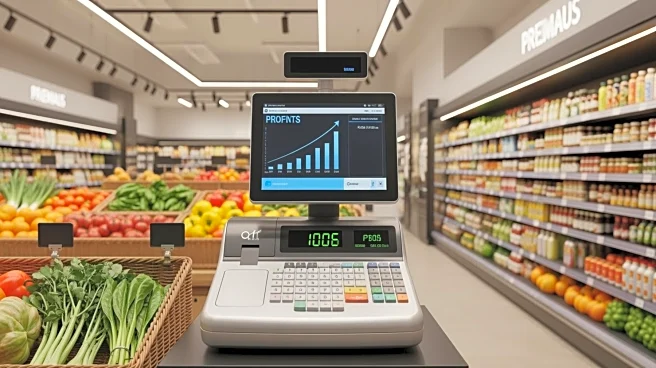What's Happening?
Lidl, the German discount supermarket chain, has reported a substantial increase in its profits for the year ending February 28, 2025. The company's pre-tax profits have tripled, reaching £156.8 million,
while operating profits rose from £220.8 million to £314.1 million. Lidl's overall sales increased by 7.9%, totaling £11.7 billion, with £400 million attributed to customers switching from rival stores and £500 million from customer loyalty. The retailer also experienced a surge of 38 million additional shoppers during this period. Lidl has maintained its position as the UK's fastest-growing supermarket for over two years. CEO Ryan McDonnell attributes this success to the company's commitment to providing high-quality products at low prices and strategic investments in infrastructure and community benefits.
Why It's Important?
Lidl's financial performance highlights the growing trend of consumers opting for discount retailers amid economic uncertainties. The company's ability to attract a significant number of new shoppers and retain customer loyalty underscores its competitive edge in the retail market. This growth not only strengthens Lidl's market position but also pressures other supermarkets to enhance their value propositions. The retailer's strategic investments in infrastructure and community initiatives further solidify its long-term growth prospects. As Lidl continues to expand its market share, it could influence pricing strategies and operational efficiencies across the retail sector, potentially benefiting consumers with more competitive pricing and improved service offerings.
What's Next?
Lidl's future plans include centralizing its human resources operations, which may lead to redundancies in regional warehouses. Additionally, the company has announced a £435 million investment in warehouse infrastructure in Leeds and London, indicating a focus on enhancing logistical capabilities. These moves suggest Lidl's commitment to optimizing its operations and supporting its growth trajectory. The retail industry will likely monitor Lidl's strategies closely, as its success could prompt competitors to adopt similar approaches to maintain their market positions.









